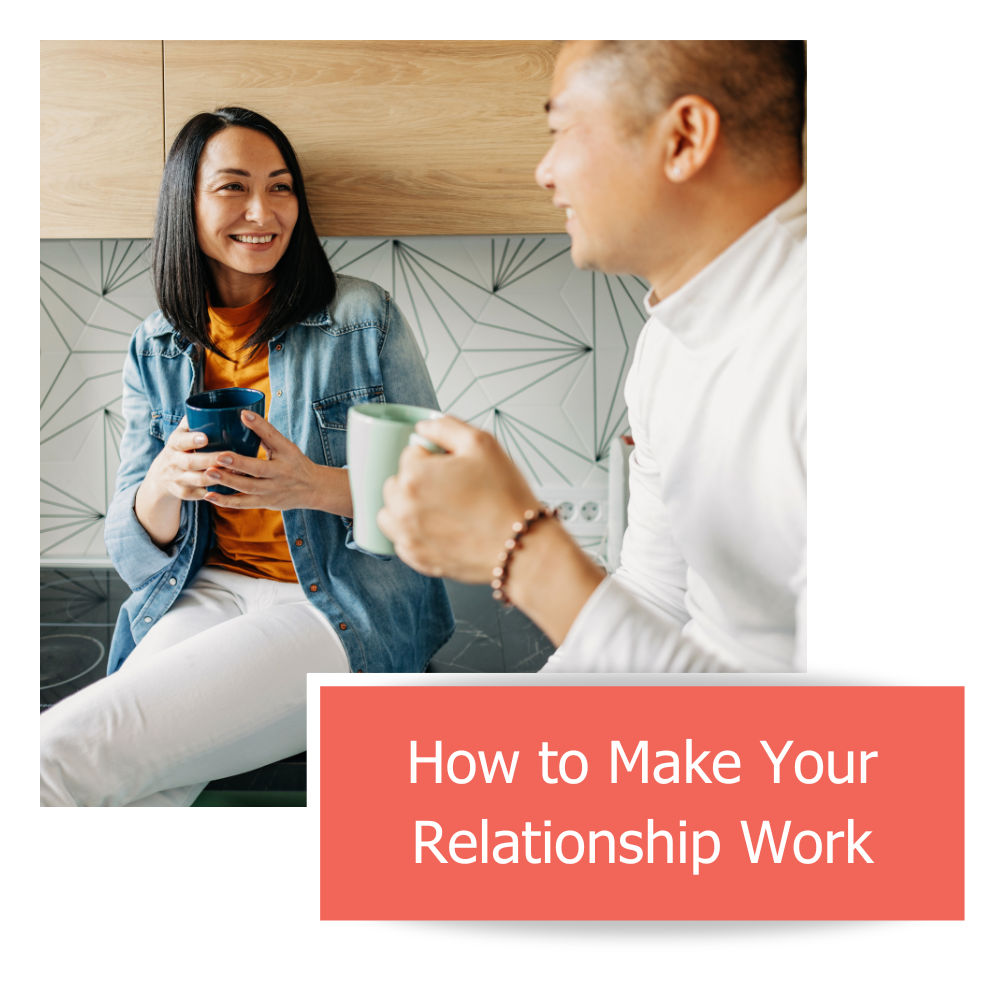Arguments are a normal part of any relationship. But understanding why couples argue can help you and your partner grow closer, not further apart. Dr. John Gottman and Dr. Julie Gottman often talk about conflict being an opportunity for deeper connection. By understanding some of the most common arguments couples have, you can take steps toward better communication, deeper understanding, and lasting connection.
Communication Challenges
When couples argue words can hurt
Ineffective communication is one of the most common reasons for conflict. Misunderstandings often come from not feeling heard or from making assumptions instead of asking questions.
You might notice this happening when:
- Words or actions are misinterpreted
- One or both partners aren’t actively listening
- Assumptions are made without clarification
Learning to listen with curiosity, expressing yourself in clear and simple language, and checking in when you’re unsure can dramatically improve your conversations.
Money Matters
It’s not just about dollars and cents.
Financial disagreements often reflect deeper needs around security, autonomy, or shared goals. Arguments can arise when:
- There are different views on “needs” vs. “wants”
- Saving and spending habits clash
- One person makes more than the other
Taking the time to first understand what money means to you and your partner is a critical part of successfully navigating this topic. Once you have explored those topics individually and then together, you can move towards working together to set financial priorities and spending habits. Being able to talk openly about money and respect each other’s perspectives will lead to greater harmony and deeper connection.
Different Values and Beliefs
Respecting where you both come from.
Conflicts can arise when partners have different upbringings, cultural backgrounds, or religious beliefs. These differences may show up in day-to-day decisions or long-term planning.
To navigate this:
- Talk about the values that are most important to each of you
- Learn about each other’s backgrounds with curiosity
- Find shared meaning in your differences
Trust and Jealousy
Healing old wounds together.
Trust is the foundation of emotional safety and is one of the walls of the Sound Relationship House (the Gottman model for a healthy relationship). It is built over time through everyday conversations and interactions. It can be built by tuning into your partner’s emotions, connecting with them when they ask, and repairing after a conflict. When trust is broken, either through betrayals, disillusionment, past traumas or current insecurities, conflict management can be significantly impacted.
Common challenges include:
- Lingering fears from previous relationships
- Feeling unsure or insecure in the partnership
- Not feeling safe to communicate in an honest and transparent manner
Rebuilding trust takes time, consistency, and reassurance. Sometimes it also requires support from a therapist.
Balancing Togetherness and Independence
Making space for both connection and autonomy.
Disagreements can happen when one partner wants more time together, while the other needs more space. It helps to:
- Talk openly about your needs for closeness and alone time
- Set boundaries around work and personal time
- Prioritize meaningful moments together to balance out alone time
Intimacy and Affection
Staying connected, emotionally and physically.
Differences in sexual desire or emotional closeness can lead to disconnection. You might feel lonely, misunderstood, or rejected. Developing rituals around connection can make this easier. There are natural times of leaving one another and reconnecting at the beginning and end of the day that are an easy place to start.
To strengthen intimacy:
- Share your needs without blame using a gentle start up
- Make time for affection, not just sex
- Develop rituals around affection and cuddling
Sharing the Load at Home
Chores shouldn’t lead to scorekeeping.
Uneven distribution of household tasks can cause resentment. When one partner carries the mental load for the relationship, they have greater responsibility for tasks like:
- Managing the household schedule
- Handling the social calendar
- Tracking kids’ activities and appointments
- Paying bills and
- Making meals and going shopping.
Much of this load can go unnoticed and create additional stress on one person which can lead to relationship stress. Arguments often stem from:
- One partner feeling they do more than the other
- Different standards around cleanliness or organization
Underlying resentment around unequal responsibility can be a reason why couples argue. Creating a plan together—and revisiting it as needed—can help each partner feel respected and valued.
Parenting on the Same Page
Two voices, one parenting team.
Navigating different parenting styles is a common topic for many parents to deal with.. It may not be a topic that you discussed before becoming parents. Parenting disagreements can be deeply emotional since they are related to your own childhood. Common areas where differences arise include:
- Views on how to discipline
- Expectations around academic performance
- Boundaries around bed time and sleep
- Screen time, cell phone use
- Role of parent (friend, mentor, authority figure)
Talk regularly about your parenting values, stay flexible as your children grow, and aim to present a united front when making decisions. Consider reading Dr. Gottman’s book Raising an Emotionally Intelligent child or buy the Emotion Coaching packet.
Lifestyle Differences
When habits clash.
Even small lifestyle differences can lead to tension over time. This might include:
- Different approaches to health, fitness, or diet
- Varied levels of social activity or friend involvement
It is ok if you have different ways of engaging in activities and friendships. However, it can be a source of conflict if you don’t discuss and acknowledge it.Supporting each other’s routines while finding shared experiences can ease these differences.
Future Plans and Big Decisions
Finding your shared path.
You may not always agree on the timeline for life events like marriage, kids, or moving. Disagreements may come from:
- Different readiness for milestones
- Contrasting visions for the future
The key is open, ongoing dialogue. Share your hopes and fears, and look for ways to align your goals without pressure.
Moving Forward Together
Every couple faces disagreements. What matters is how you respond. By recognizing common argument triggers and approaching them with curiosity and care, you can turn moments of tension into opportunities for connection.
You don’t need to have everything figured out. Now that you know why couples argue, you just need a willingness to listen, learn, and grow—together.
Reviewed by: Dr. Vagdevi Meunier, PsyD
Vagdevi Meunier, Psy.D. is a licensed clinical psychologist and Founder of The Center for Relationships in Austin, TX. Vagdevi has over 40 years of experience as a therapist, coach, and educator who taught graduate students and professionals at University of Texas and St. Edward’s University in Austin. She is a Senior Certified Gottman Therapist and Approved Clinical Trainer. For the past 20 years, Vagdevi has been facilitating the Art & Science of Love Workshop Gottman retreat for couples in Austin and around the US and has taught all 3 levels of the Gottman professional trainings and coached clinicians from around the world on this method.








